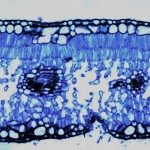Link to Pubmed [PMID] – 20370818
Environ. Microbiol. 2010 Jul;12(7):2007-19
Mass mortality events of benthic invertebrates in the temperate north-western (NW) Mediterranean Sea have been observed in recent seasons. A 16 month in situ study in the Ligurian Sea (NW Mediterranean Sea) demonstrated that the occurrence of Paramuricea clavata mortality episodes were concomitant to a condition of prolonged high sea surface temperatures, low chlorophyll concentrations and the presence of culturable Vibrio spp. in seawater. The occurrence of Vibrio spp. at the seasonal scale was correlated with temperature; with few vibrios retrieved on specific media when the temperature dropped below 18 degrees C and a sharp increase of vibrios abundance (up to 3.4 x 10(4) MPN l(-1)) when the temperature was greater than or equal to 22 degrees C. Phylogenetic and phenotypic analysis of Vibrio isolates associated with healthy and diseased P. clavata colonies collected during a mortality episode showed that these bacteria were significantly more abundant in diseased than in healthy corals and were related to the V. harveyi, V. splendidus and V. coralliilyticus groups, the latter only identified in diseased organisms. Inoculation of bacterial isolates from these groups onto healthy P. clavata in aquaria caused disease signs and death in a range of Vibrio concentrations, temperature values and trophic conditions consistent with those recorded in the field. It is concluded that Vibrio infections may act as an additional triggering mechanism of mass mortality events in the coastal Mediterranean Sea and that their occurrence is climate-linked. Predicted global warming leading to long-lasting hot summer periods together with stratification resulting in energetic constraints represent a major threat to the survival of benthic invertebrates in the temperate NW Mediterranean Sea due to potential disease outbreak associated with Vibrio pathogens.


